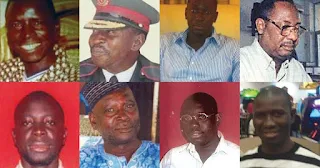Monday, April 14, 2025
Editorial: Justice Beyond Tribunals: Prioritizing Reparations for Victims of Yahya Jammeh’s Regime
By Alagi Yorro Jallow
The Gambia stands at a crossroads in its pursuit of justice and reconciliation. The government’s plan to allocate over D4 billion (approximately USD 60 million) to prosecute former president Yahya Jammeh and a select few through a Special Court of Tribunal raises serious concerns. While accountability for the atrocities committed during Jammeh’s regime is essential, we must confront the uncomfortable truth: is this the most effective and just path forward, especially in a nation grappling with economic hardship?
Mai Ahmad Fatty, leader of the Gambia Moral Congress (GMC), has rightly questioned the wisdom of this approach. He argues that these funds would be far better spent on reparations for the victims and families who continue to bear the scars of Jammeh’s brutal rule. This is not just a matter of economic prudence—it is a moral imperative. Reparations represent an acknowledgment of the pain endured by victims and a commitment to restoring their dignity. They are a tangible step toward healing and rebuilding lives shattered by years of oppression.
The proposed tribunal risks becoming yet another cash cow for lawyers, judicial officials, and private law firms—a repeat of the wasteful spending seen in the trial of the NIA 9, who were responsible for the murder of Solo Sandeng. In that case, over 50 million dalasis were funneled to a private law firm, despite the fact that the Department of Justice had capable prosecutors who could have handled the case. This outsourcing not only drained public funds but also created an opportunity for a select few to profit from the suffering of others. It was a betrayal of the very principles of justice and accountability that the trial was meant to uphold.
The Gambia cannot afford to repeat such mistakes. Justice must never be reduced to an industry for the privileged few at the expense of the very victims it seeks to serve. Instead, the government should focus on strengthening the existing Special Criminal Division of the High Court to handle prosecutions in a cost-effective and sustainable manner. This approach would ensure that justice is served without diverting critical resources away from the pressing needs of victims and the broader population.
Reparations are not a luxury—they are a necessity. Allocating funds to healthcare, education, and economic opportunities for victims would have a transformative impact, enabling them to rebuild their lives and contribute to the nation’s progress. At the same time, we must recognize that true justice is not solely about punishment. It is about fostering a culture of accountability, forgiveness, and unity. Fatty’s call for banning Yahya Jammeh from politics for life is a pragmatic step that balances the need for accountability with the imperative of moving forward as a nation.
The economic realities of our country demand that we prioritize the needs of the many over the interests of the few. A protracted and expensive tribunal risks becoming a distraction from the substantive issues that matter to the people. Justice must be about more than retribution—it must be about restoration, reconciliation, and the collective healing of our nation.
Fatoumatta: If we truly seek justice, let it be justice that restores, not one that drains. Let it uplift the broken, rather than enrich a select few. Reparations are not a favor—they are a moral obligation. Let this be the defining moment where we choose people over profit, healing over vengeance, and truth over political convenience. The future of The Gambia depends on it.
Subscribe to:
Post Comments (Atom)





No comments:
Post a Comment